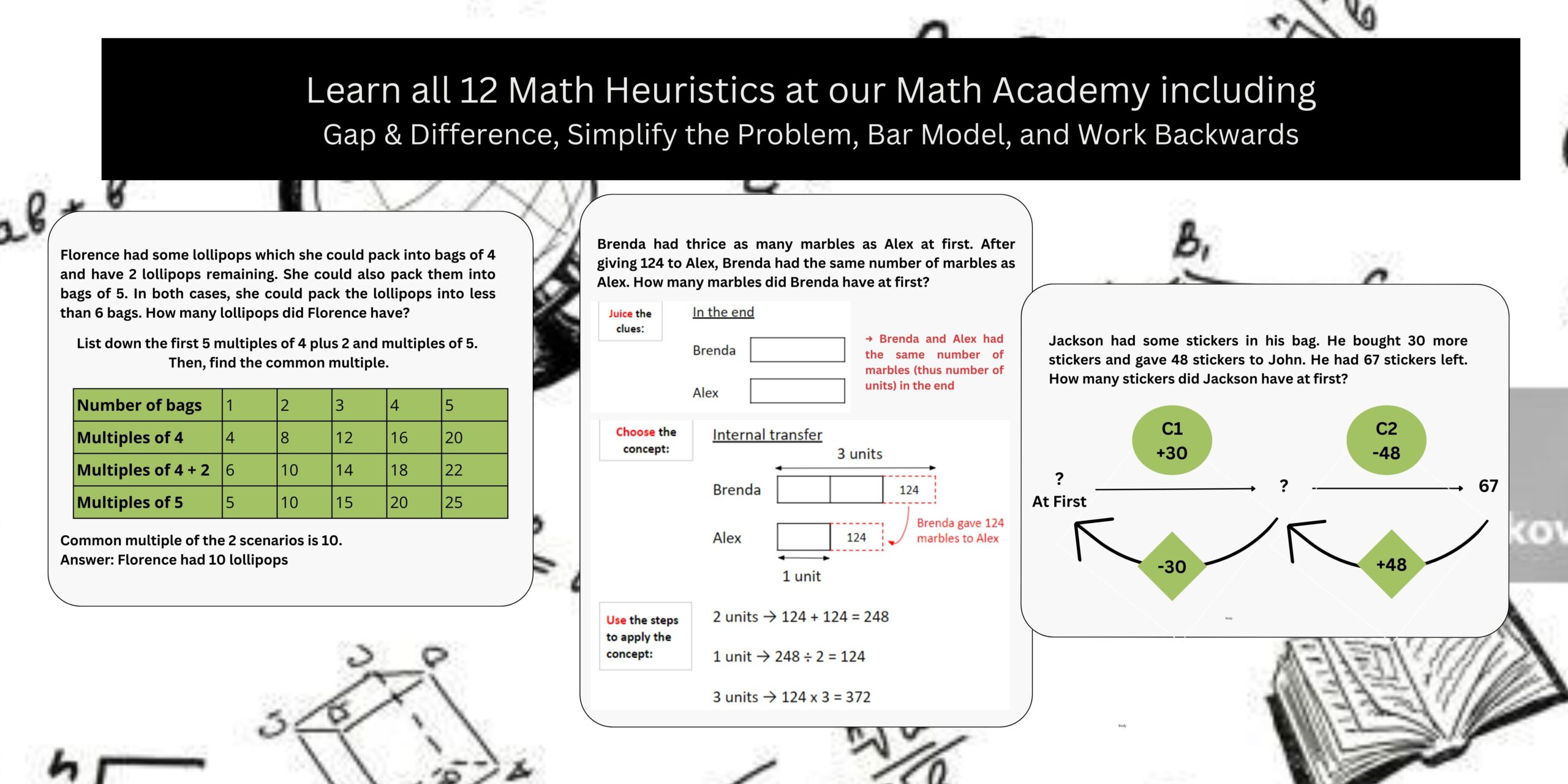Enjoy up to 4 lessons off when you enrol today FIND OUT MORE

The Math Academy
At The Math Academy (TMA), we focus on building students’ confidence in arithmetic and math skills, even when they face challenges, by fostering a positive mindset. We believe that mathematics is more than just a set of rules and procedures; it is a dynamic and fascinating field that extends beyond rote memorisation. Through our Smartwave Cognitive Program, we enhance critical thinking and problem-solving skills, aiming for a strong conceptual foundation.
Our tutors act as guides, helping students explore heuristic math concepts aligned with the latest MOE Syllabus. By demonstrating the relevance of mathematics in everyday life, we seek to inspire students to cultivate a lifelong appreciation for the subject. This approach not only deepens understanding but also motivates students to recognize the practical applications of what they learn.

Our Winning Formula
Our unique pedagogy, known as ‘J.C.U.’, guides students through the semantics of mathematical content (Juice), assisting them in selecting the most appropriate concepts to apply (Choose), and then following the method or steps relevant to the chosen concept (Use).
Student Engagement
At TMA, our tutors interact with students through engaging and enjoyable activities, fostering a positive learning attitude and mindset. We incorporate brain-stimulating questions, dialogues, arithmetic tools, and mathematical games to maximise student learning. We believe that for a sustainable heuristic process, students must be motivated to explore and discover learning on their own.
Insert Formula here
1. Find the JUICE of the content or question.
2. CHOOSE the most appropriate concept or formula to apply.
3. USE effective problem-solving method, in relation to the chosen concept, to get the correct answer in the shortest possible time.

Class Size : 6 students.
Duration : 2 hours once a week.
Levels : Primary / Secondary School.
Develop your Child’s Mathematical Abilities with Our Math Enrichment in Singapore
- Winning formula enhances cognitive skills for mastering mathematical concepts and methods.
- Fun approach fosters confidence and motivation during the heuristic process.
- Math syllabus fully aligned with MOE in Singapore; taught with real-world applications.
- Small classes with personalised teaching promote deeper understanding and appreciation of math creativity.

